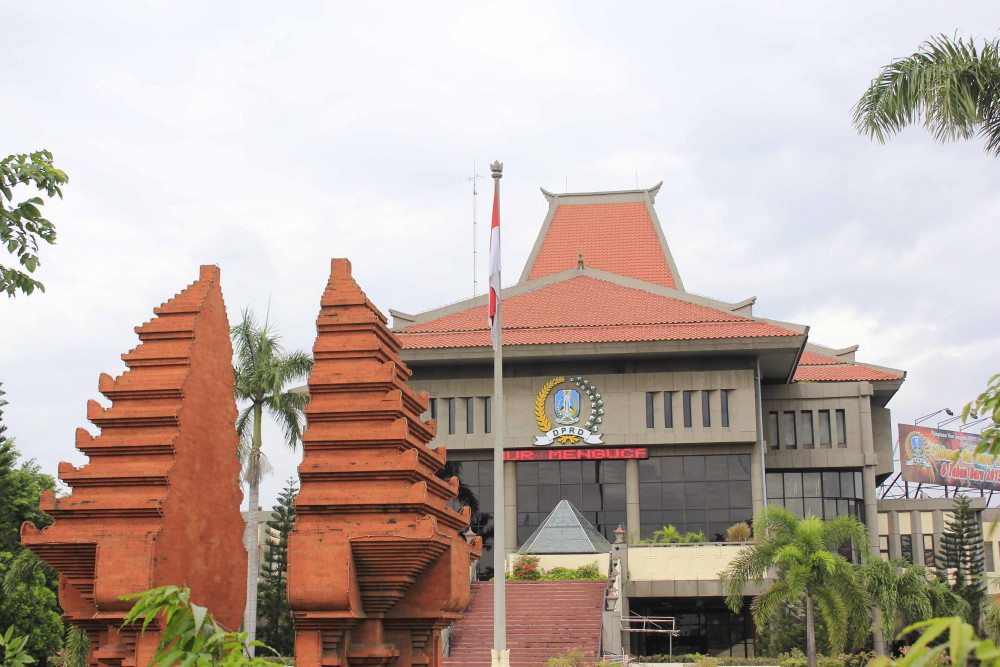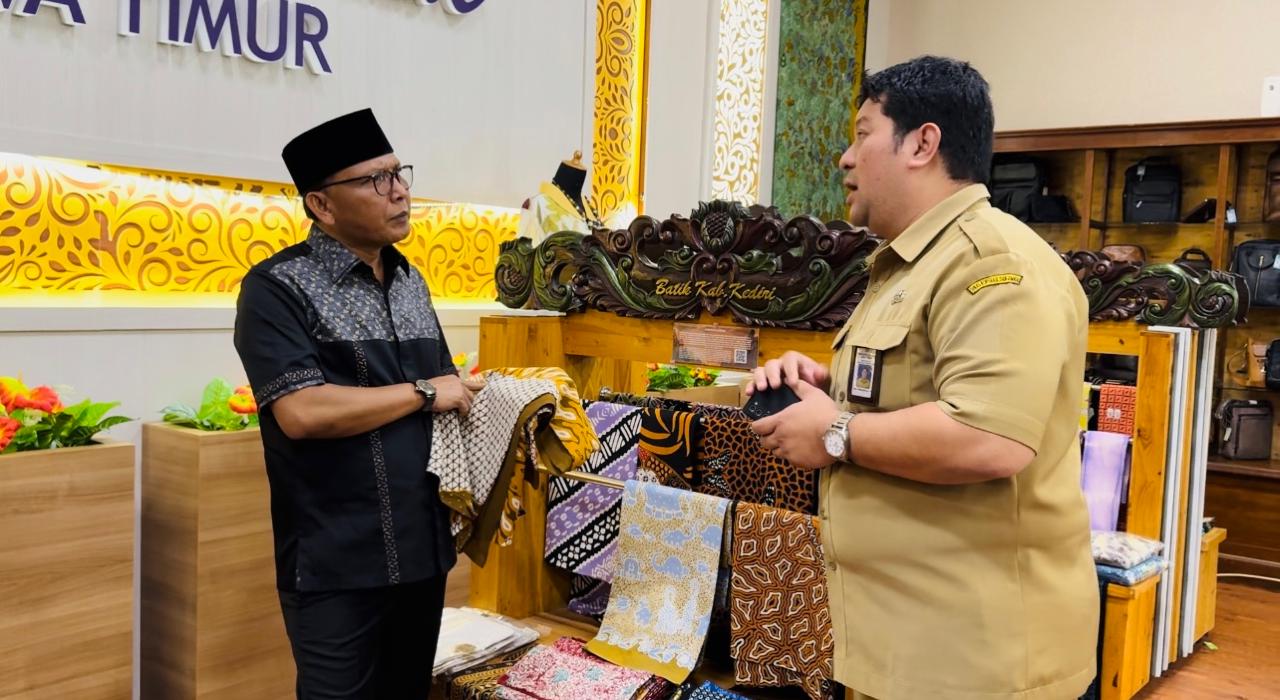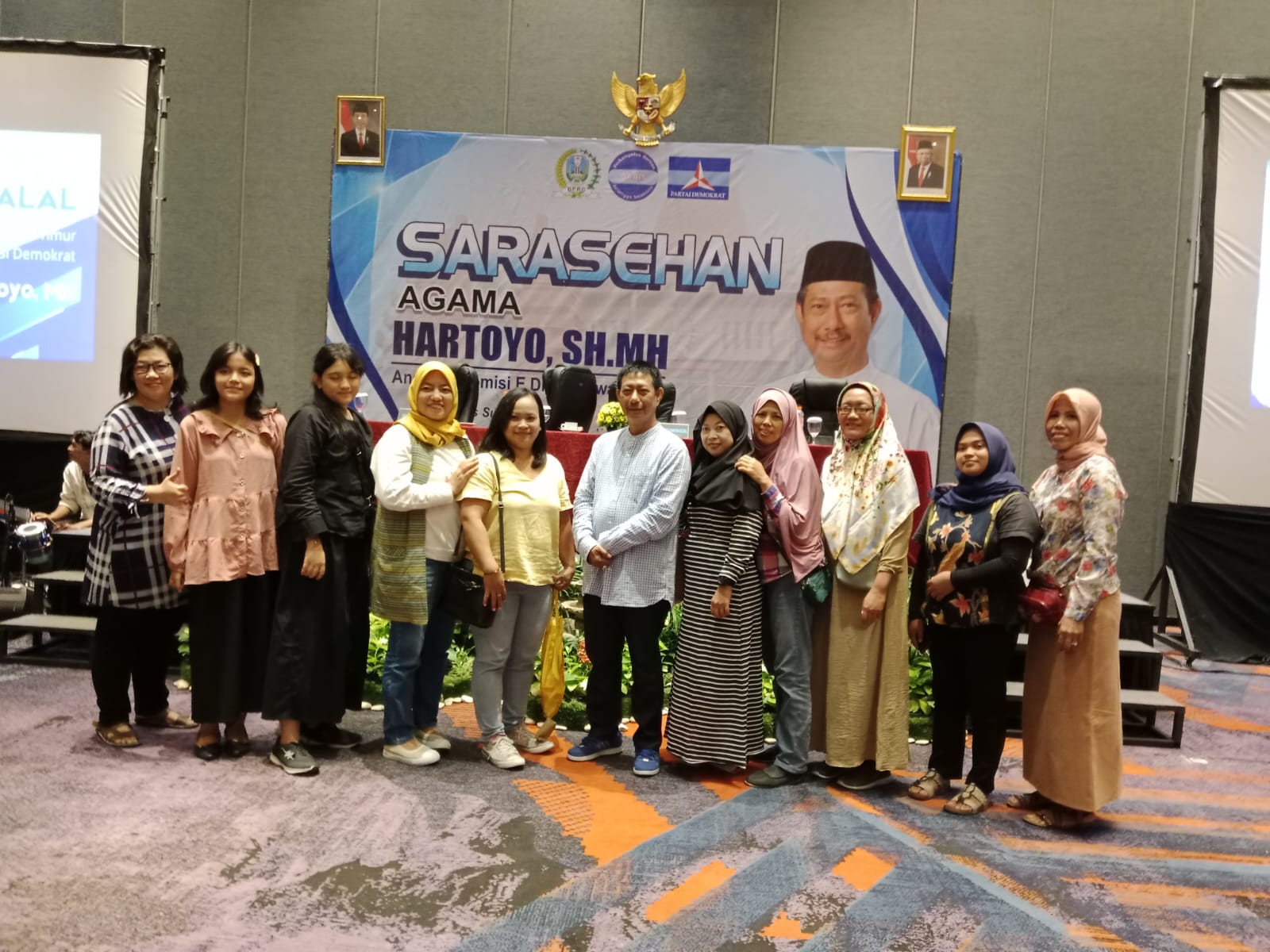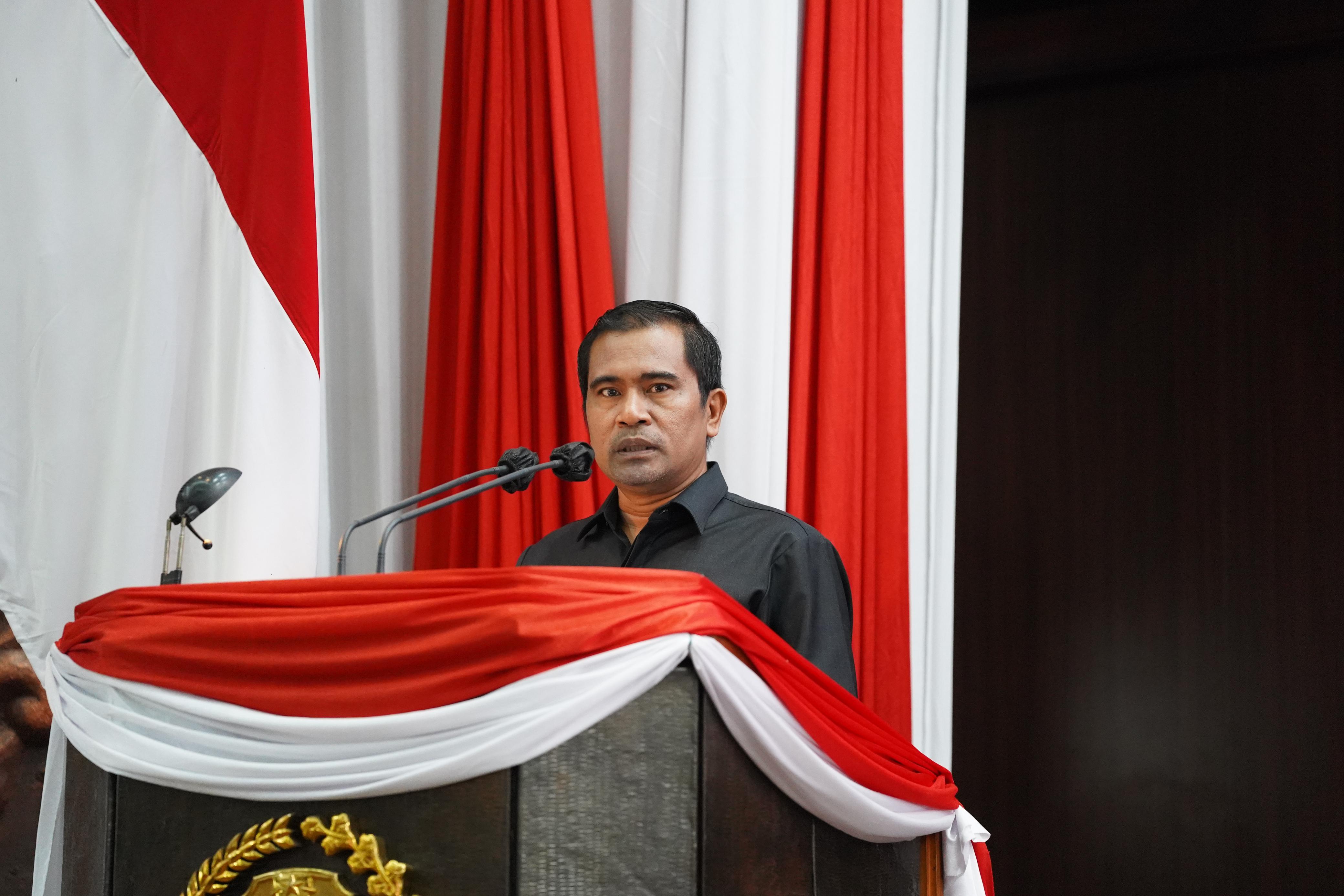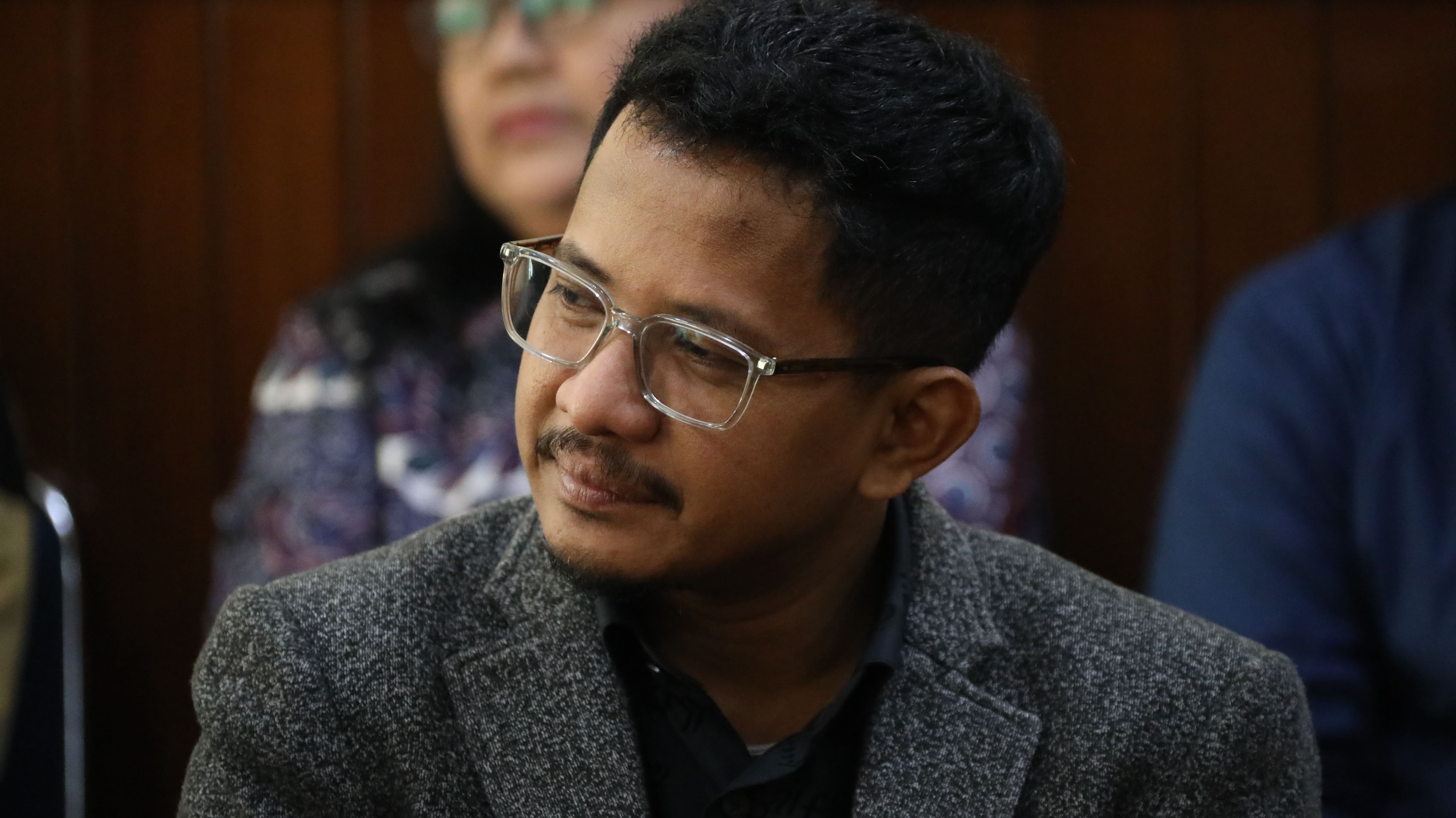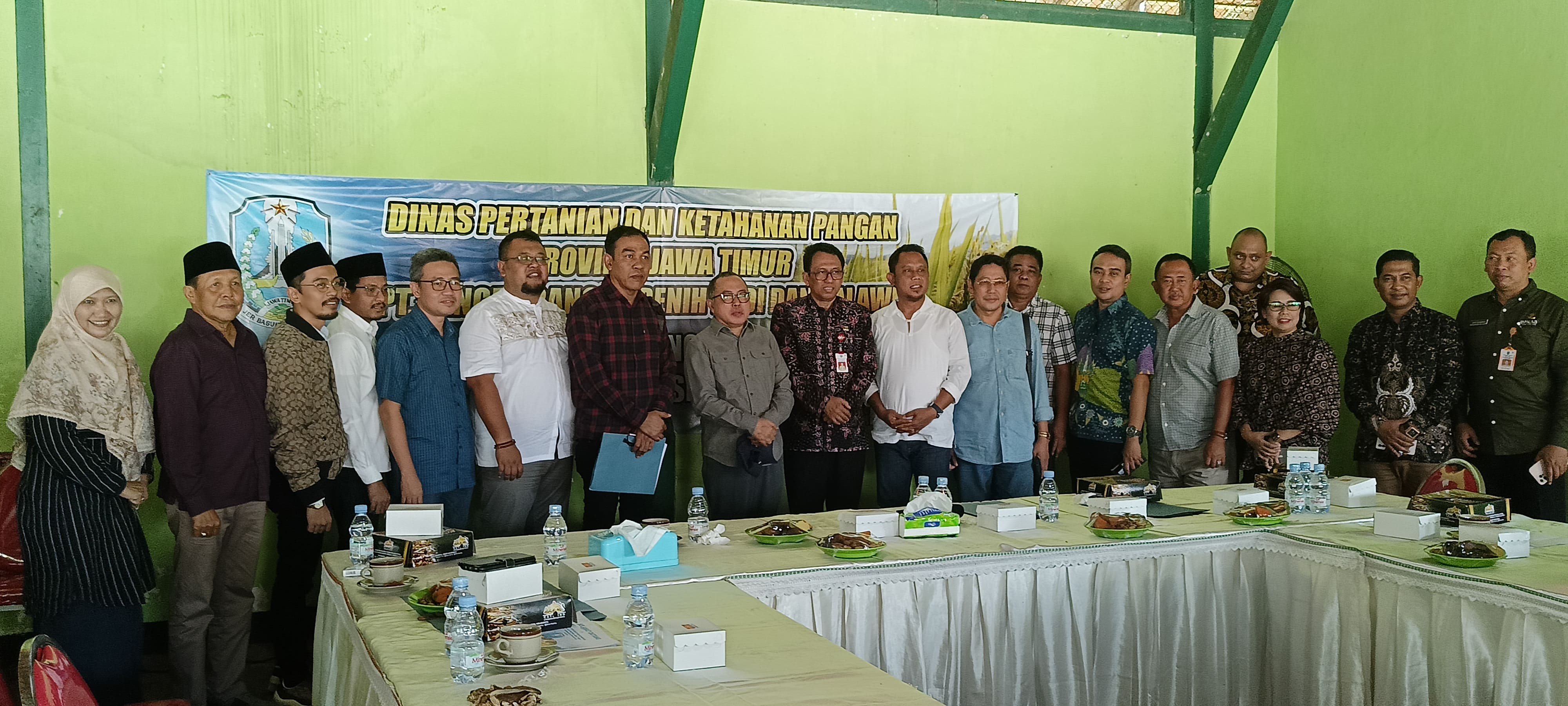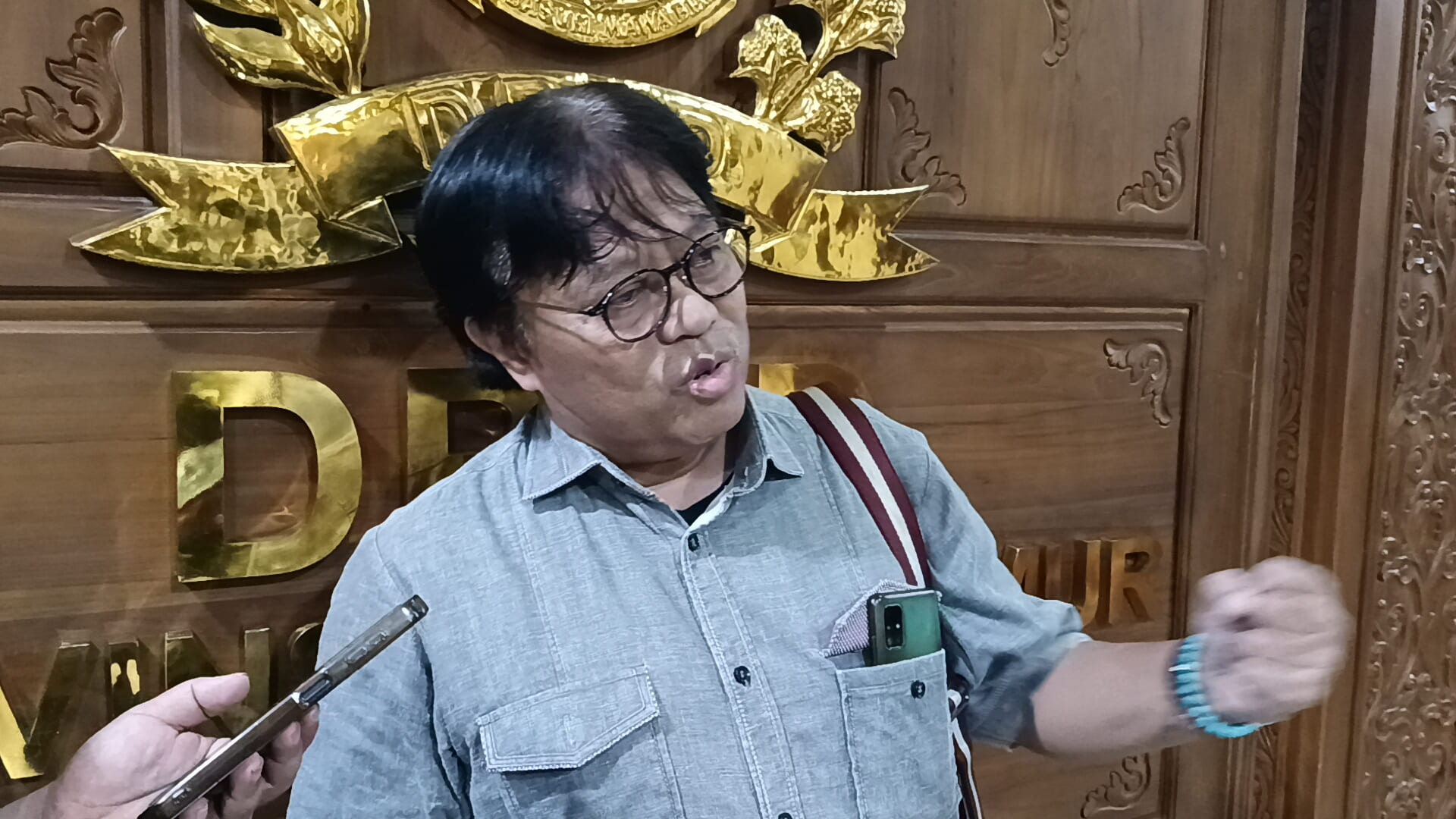History of the East Java Provincial DPRD
East Java Province was formed as a Santara region based on Law no. 2 of 1950, to be precise August 15, 1950.
The administration of the state adopted a liberal democratic system, in which the President of the Republic of Indonesia was only a symbol of the state and the administration of the state was run by a prime minister with several ministers who generally came from coallition of major parties.
Several acts and regulations had been issued, including:
- Act number 2 of 1950 concerning The Autonomous Region and Act number 7 of 1950 concerning The Regional House of Representatives (DPRD).
- Government Regulation number 39 of 1950 concerning The Regional House of Representatives, which among other things mandates that each province and regency/municipalities to form an institution of Temporary Regional House of Representatives (DPRDS) not later than October 1950.
The formation of East Java DPRDS, which was already settled, had to be stopped due to a motion driven by S. Hadikoesoemo because he assumed that the reason of the East Java DPRDS establishment only benefited the ruling party.
Government Instruction of the Republic of Indonesia number 1 of 1950, which mandated to assign an autonomous Head of Region/Governor throughout Indonesia to serve as speaker of the DPRDS, had been issued to fill the vacancy of regional/regency/municipal DPRDS in Indonesia.
This condition caused the function of the DPRDS to become distorted by the policy of the Head of the Region causing the system of democracy did not run properly.
The cabinet of Ali Sastromijoyo (1953-1955) put forward four programs as an urge to hold the 1955 general election in which the consideration of general election was the main precondition for the functioning of the democratic government system.
That year, the government held two general elections. The First general election was held in September 29th 1955 to elect members of parliament. The second general election was held in December 15th, 1955 to elect members of constituent assembly. The main task of the constituents was to formulate a new state principle as to substitute of the Temporary Constitution (UUDS) 1950.
In the 1955 general election, the East Java DPRD allocated 60 seats. Here is the list of political parties winning their respective seats after the vote counting of the 1955 election:
NU : 21 seats
PNI : 14 seats
PKI : 14 seats
Masyumi : 7 seats
AKUI : 1 seat
Christian Party : 1 seat
PRI : 1 seat
PSI : 1 seat
The general election result automatically changed the composition, position and balance of representatives which later formed the East Java DPRD with R. Soebandi as the speaker of the House.
Munas (National conference) was held on September 14th, 1957 in Jakarta.
The national conference recommended holding a Munap (conference on development). The East Java DPRD proposed development meeting regional expectations and coping disparity between central and regional. However, the Munap result could not implement the Munap result.
The constituent assembly failed to formulate a state principle due to a tug-of-war of interests. A group of parties wanted Pancasila to become the state principle, while others wanted Islam as the principle.
The failure of the constituent assembly resulted in a political crisis encouraged President Soekarno to decide that the Republic of Indonesia must reenact to the previous 1945 Constitution through a Presidential Decree on July 5th, 1959.
The objectives of the Presidential Decree were the liquidation of the Constituent Assembly, the re-enactment of the 1945 Constitution, the invalidation of UUDS 1950, the establishment of the Temporary People’s Consultative Assembly (MPRS) and the Temporary Supreme Advisory Council (DPAS).
President Soekarno also dissolved DPR/DPRD result of the 1955 general election.
The government issued Presidential Decree Number 5 of 1960, with the mandate of people’s representatives consisted of representatives of political groups and functional groups named DPR-GR (Dewan Perwakilan Rakyat Gotong Royong/ People's Representatives Council of Mutual Assistance). The description of the political groups consisted of parties of Nationalist, Islam, Christian, and Communist. Whereas the functional groups were the armed forces, religiosity, and spiritual development.
The leadership of East Java DPRD-GR was again chaired by the Governor of East Java, R. Soewondo Ranoewidjojo.
The Governors of East Java who concurrently served as the Chairman of DPRDS were Samadikoen (1949-1957) and R.T.A Milono (1957-1959) as recorded. While the Governors of East Java who concurrently served as the Chairman of DPRD-GR were R Soewondo Ranoewidjojo (1959-1963) and Moch Wiyono (1963 – 1967).
Act number 18 of 1965 issued concerning the Government Principles in Regions. The fundamental things on the Regional government law were the title segregation between the governor/head of the region and the chairman of DPRD-GR, and there was no prohibition for a head of the region to be a member of a political party, and the head of the region had no role of being an elder of the province/district/municipality.
The new era of the East Java DPRD-GR actually began in 1965 with the vividness on its composition, position, especially in terms of the number of seats, factions, and complementary organs. Based on the population of East Java at that time, there were 76 seats of the DPRD-GR were determined or 16 more seats compared to the general election result in 1955 gained from NU, Masyumi, IKPI, ABRI, Parmusi, Catholic, PSII, Kerohanian, Partindo, Material, Spiritual, and Perti.
The 1971 general election authorized Colonel Moch Said as the chairman of the East Java DPRD.
The government simplified the political parties participating in the elections by establishing three participant parties of the election, they were the Golkar Party (Golkar), the United Development Party (PPP), and the Indonesian Democratic Party (PDI).
Act number 5 of 1974 on Regional Government was issued to replace the previous law number 18 of 1965.
The essence of the Act number 5 of 1974 was a legal certainty that a head of the region was separate from a chairman of the DPRD but both were the regional government administrators.
A governor was given a role of development administrator, a sole ruler in the region as well as being a leader of the Regional Leadership Council.
In the 1977 general election, the number of seats in the East Java DPRD increased to 80 seats and in the 1982 general election the number of seats became 100 based on the population calculation.
In the 1997 general election Golkar party’s ambiton of winning the election fulfilled that most of the seats in the East Java DPRD were from Golkar faction, followed by PPP and PDI. In a plenary session of the East Java DPRD in 1993, Trimarjono was elected as a chairman of the East Java DPRD.
The 1987 general election result placed Mrs. Asri Soebarjati Soenardi the chairman of The East Java DPRD.
The 1998 general election was an effort to get out of the multidimensional crisis by potitioning leaders trusted by the people. Participated by 54 political parties in which 21 political parties won the votes to occupy 100 seats in the East Java DPRD.
On June 7th, 1999, President BJ Habibie revoked five packages of law. Instead, the DPR issued a legislation on Political Parties, General Election and Structure and legal standing of MPR, DPR, DPD and DPRD. The MPR held a session and produced a number of MPR decrees, including those concerning regional autonomy and the organizing of accelerated elections.
The development of reform accelerated, which in turn, the position of people’s representatives in both the DPR and the DPRD was at an equilibrium when Act number 22 of 1999 on Regional Government enacted in which the head of the region was responsible to the DPRD.
In its course, Act number 22 of 1999 was amended to Act number 32 of 2004. The essential part of the Act number 32 of 2004 was that a head of region was not responsible to the DPRD for the people elected the head of region directly through a regional head and deputy regional head election.
he issuance of Act number 22 of 2003 on The Composition and Position of the MPR/DPR/DPRD/Regency DPRD and Municipal DPR strengthened the bargaining power of DPRD as the organizer of the regional government. Let alone the Act number 22 of 2003 was amended to the Act number 27 of 2009 making the DPRD including the East Java DPRD more effective as legislators.
The formation of the East Java DPRD members of 2009-2014 service period was formed based on the legislative election held on April 9th 2009.
12 of 38 parties that participated in the legislative election of 2009 won the seats in the East Java DPRD. The Democrat party won the most with 22 seats, the PDI (Indonesian Democratic Party of Struggle) won 17 seats, the PKB (National Awakening Party) won 13 seats, the Golkar (Golongan Karya Party) won 11 seats, the Gerindra Party won 8 seats, the PAN (National Mandate Party) won 7 seats, the PKS (Prosperous Justice Party) won 7 seats, the PKNU (Ulema National Awakening Party) won 5 seats, the Hanura Damai Party won 5 seats and the PPP (United Development Party) won 4 seats, the PBR (Reform Star Party), the PDS (Prosperous Peace Party) won 1 seat.
The result of the legislative election for East Java Province put the National Awakening Party (PKB) in first place by winning 3,671,911 votes or 19.6%.
By this acquisition, it impacted the seats won by each political party in the East Java DPRD as well. The PKB won 20 seats, the PDI-P won 19 seats, the Gerindra Party won 13 seats, the Democrat Party won 13 seats and the Golkar Party won 11 seats. Especially for the PKS, in spite of winning 5.2% only, this middle party reached 6 seats or more than one faction.
Imam Sunardhi was the chairman of the East Java DPRD in 2009-2014 sercive period.
The result of 2019 legislative election positioned the Indonesian Democratic Party of Struggle (PDI-P) in the first place obtaining 4.319.666 votes or 19.57%.
The PDIP won 27 seats, the PKB won 25 seats, the Gerindra won 15 seats, the Golkar won 13 seats, the Nasdem won 9 seats, the Democrat won 14 seats, the PAN won 6 seats, the PPP won 5 seats, the PKS won 4 seats, the Hanura won 1 seat and the PBB won 1 seat.



